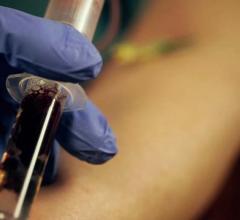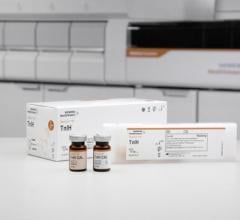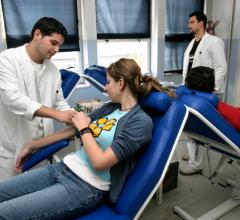
June 20, 2011 — Randox Laboratories, the international clinical diagnostics company, has today launched an automated laboratory assay for heart-type fatty acid binding protein (H-FABP) to improve the diagnosis and management of patients with suspected acute coronary syndrome (ACS).
This new rapid, fully quantitative assay means that H-FABP can now be used routinely in the acute clinical setting; previous laboratory assays were more suited to research.
Recent trials have shown that H-FABP provides significant diagnostic value, especially during the early hours following ACS symptom onset. Such results are particularly valuable in the early period when current diagnostics struggle and many patients are conservatively admitted for observation, often unnecessarily. The use of H-FABP, alongside troponin, offers the potential to rule out ACS in many patients from the time of presentation.
These results have also been shown to apply with the new generation of "high sensitivity" troponins (hsTn). The outcomes of one recent study from the University of Manchester, U.K., presented in Berlin in May, suggest that a combination hsTn, H-FABP and electrocardiogram (ECG) on admission will provide a highly accurate test for acute myocardial infarction (AMI).
Dr. Rick Body, lead author of the study, explains, "We know from existing evidence that H-FABP and troponin have additive diagnostic value. In a recent study, we showed that the combination of H-FABP and troponin is more accurate for early diagnosis than troponin alone and more accurate than other biomarker combinations. It is apparent that even a normal hs-troponin level at presentation doesn't rule out AMI without serial sampling. This demonstrates the clinical need for an early marker such as H-FABP."
For more information: www.randox.com


 October 09, 2019
October 09, 2019 









